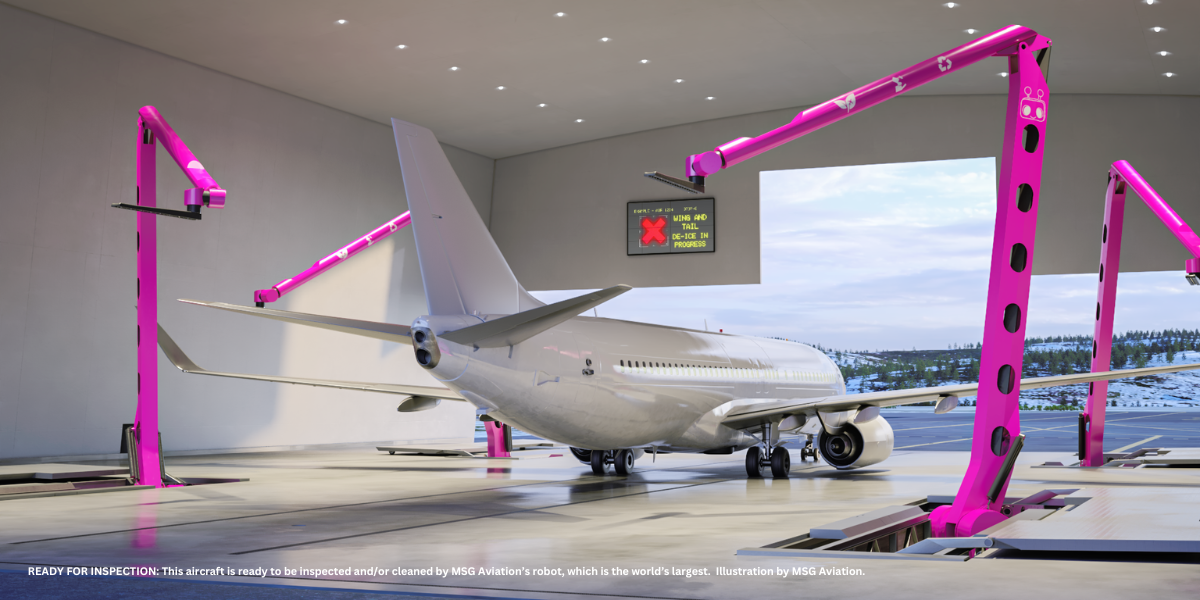New ground ops robot can help reduce emissions and cost
After years of testing, Norwegian company MSG Aviation will start building “the first robot exclusively constructed for de-icing, washing, engine washing, and technical inspection of aircraft.” This seeks to replace the current manual and time-consuming processes in place, ultimately reducing costs and lowering carbon emissions.
MSG Aviation anticipate that by regularly washing the exterior of aircraft, fuel burn can be reduced by approximately two per cent through minimising air resistance. Furthermore, frequent cleaning can help optimize maintenance costs by reducing wear and tear on the fuselage.
The robot uses MSG Aviation’s proprietary artificial intelligence (AI) software, combining AI, green, and efficient tech. Having worked together with Avinor Oslo Airport for several years during testing and development, MSG Aviation will now begin building.
MSG Aviation CEO Ove Troen discussed the robot’s contribution to the industry:
“There is no reason why airlines should continue with manual, time-consuming and expensive processes, when we can do it faster, better, more environmentally friendly, and more cost-effective by using new technology. We can contribute to the airlines improving their efficiency and on-time performance, while saving money on fuel and reducing emissions.”
The robot is designed for a spectrum of aircraft from larger passenger plans to smaller private planes. It is also suited to a range of conditions as explained by Troen:
“Airlines all over the world have a need for these services, but with somewhat different needs. Here in the north, there is an obvious need for de-icing and regular washing, while in other parts of the world, where planes fly over the desert, there is an obvious need for regular removal of sand from the fuselage and the engines.”
MSG Aviation’s robot is an exciting step in the evolution of ground operations. The automation of ground operations can improve efficiency, help to optimise costs, and reduce the industry’s environmental impact.
Article by Jess Brownlow





